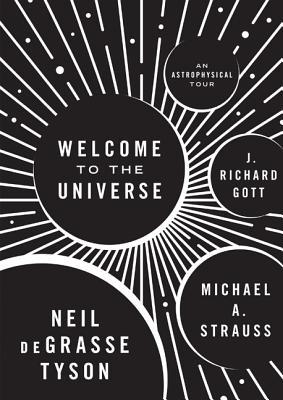Based on the introductory astronomy course co-taught by the authors, Welcome to the Universe is a one-volume summary of modern astronomy, from our solar system and beyond—including planets, stars, galaxies, and black holes.
I’ve read a lot of popular science books, and this one stands apart. I find it’s content entertaining, approachable, and scientific, extremely broad in scope, but detailed enough to keep my interest. The history of astronomy and its contributors represent a significant portion of the book, with most of the focus on recent astronomers and explanations of the equations they contributed, especially Planck, Maxwell, Newton, and Einstein.
Most interesting of all is the new information that is more difficult to find in popular science books (with the exception of black holes—everyone loves those), including Kuiper belt objects, exoplanets, dark matter, and black hole specifics, like the LIGO gravitational wave experiment. Dr. Tyson’s narrative of how Pluto lost its planetary status is notably fun.
Toward the end, the content moves from physical data to mathematical speculation, which is inspiring and meant to be so, but also feels a little too un-grounded, especially with regard to intelligent life elsewhere in the universe, time travel, and infinite multiverses.
My biggest beef has nothing to do with the meat of the material at all. Most pop-science books are fine for audiobook formats, but this one references equations and diagrams constantly, and while they are provided separately for the audio version, I did not pull them up during my morning commute. Make sure you can read this one on the page and in full color!
Recommended as an introductory astronomy text for anyone interested in learning some real science!
“When you are 31 years, 7 months, 9 hours, 4 minutes, and 20 seconds old, you’ve lived your billionth second.”
